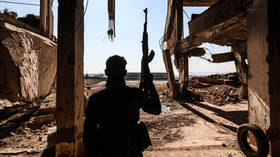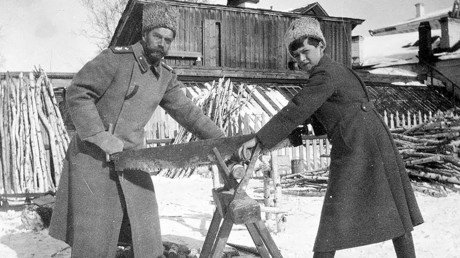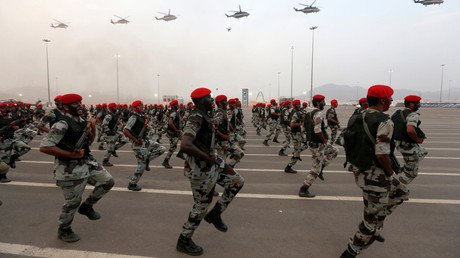Cambodian activist detained over RT sex-trafficking doc deported from Thailand & faces jail
A Cambodian activist has been deported from Thailand and is now facing jail for helping RT make a documentary about the sex-trafficking of children. Cambodian authorities insist it included fake accounts to “defame” the country.
Rath Rott Mony, 47, helped shoot RT’s viral documentary “My Mother Sold Me,” which includes harrowing accounts of young women whose own parents forced them into prostitution to help feed the family.
Mony was detained in Bangkok, Thailand on Friday as he was preparing for a trip to the Netherlands, his wife, Long Kimheang told RT. He was about to retrieve his passport from the Dutch embassy that day, she said, and the police refused to let her film the arrest.
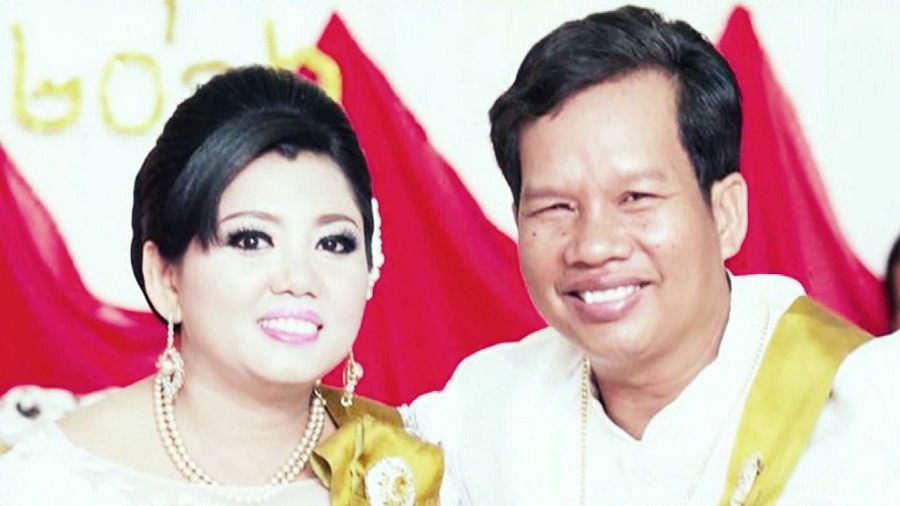
The labor activist, who is the president of the Cambodian construction workers union CCTUF, was first held in a Thai police station before eventually being deported to his home country on Wednesday. The Office of the United Nations High Commissioner for Human Rights has confirmed Mony’s deportation to RT, but could not comment on the charges brought against him. Cambodian police spokesperson Chhay Kim Khoeun told Reuters that they "will send him to court,” which will determine the charges.
Mony worked as a fixer for RT Documentary crew shooting “My Mother Sold Me” in October. The documentary includes an account of a poor Cambodian girl who was sold into sex work by her mother.
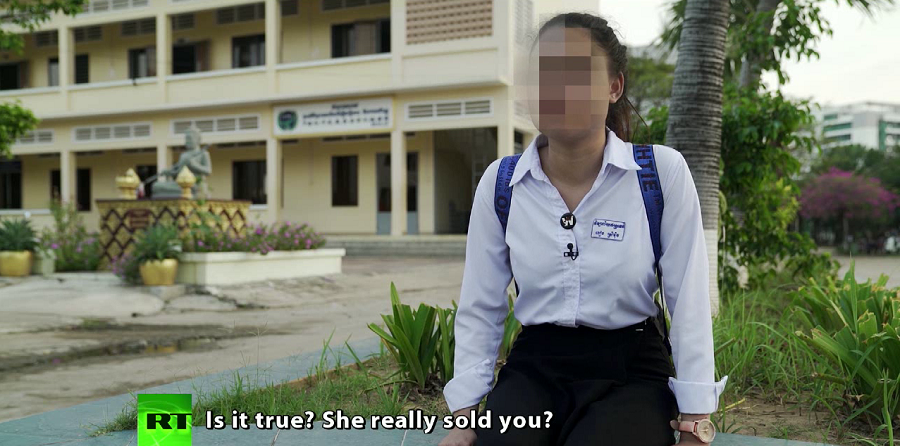
Cambodian officials have blasted the documentary, claiming it tarnishes the nation's "culture and reputation." They said that the mother and daughter, featured in the film, were paid to tell lies.
Cambodia’s Interior Ministry spokesman, Khieu Sopheak, has vowed that Mony "will not be free" because he "committed a crime."
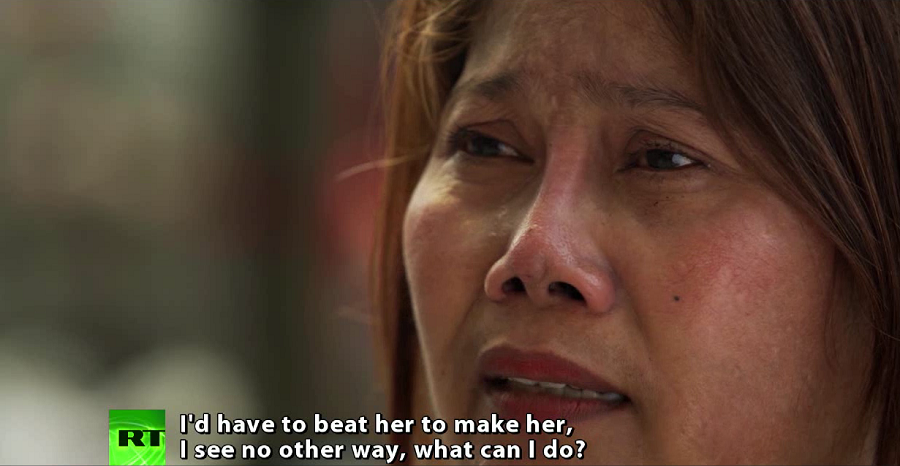
Mony’s wife Long Kimheang is afraid that he will be jailed, and suspects that his activism might be behind the persecution.
Speaking to RT, Long disagreed with the accusations, suggesting that the government now wants to smear the film and her husband.
"To me, the Cambodian government wants to discredit the film “My Mother Sold Me,” the documentary watched by thousands of people around the world and in Cambodia also. So the government wants people to forget the issue revealed by the film," Long said.
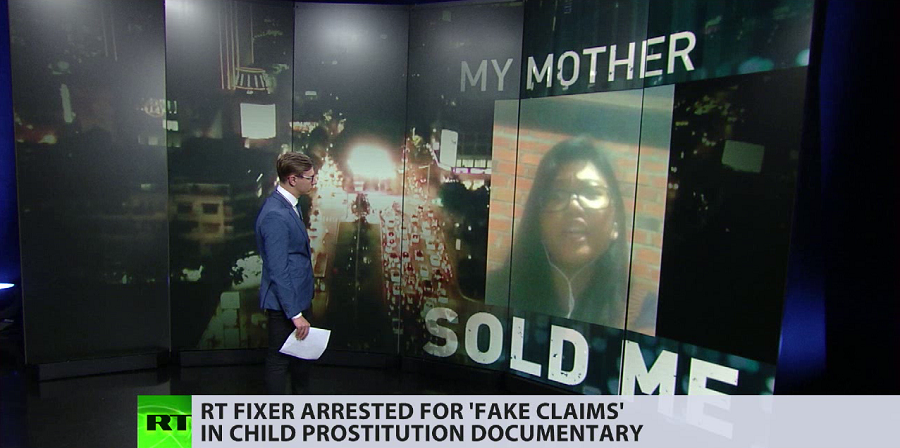
She suggested that the girl and the mother from the documentary were pressured by the police, otherwise the mother herself could have been arrested. The same suspicion was expressed by the film's director, Pavel Burnatov.
"These girls are no actors. To ask them to do some sort of a scene would be useless. It would be insane. They told their stories in such detail – you simply can't make them up like that," Burnatov told RT.
Burnatov believes that the girls were likely subjected to duress later since their mothers publicly confessed violating the law by selling their children into the sex industry.
"The family of the girl that went to police has said that we gave them 200 dollars. That was the money we wanted to spend on a washing machine for them. We just didn’t have time to buy it for them – so we just gave them the money instead so it would help their laundry business," Burnatov said, stressing that at no point did any of the families ask for money. "When you see in what conditions those people live… anyone, if they have a possibility, would try to help them."
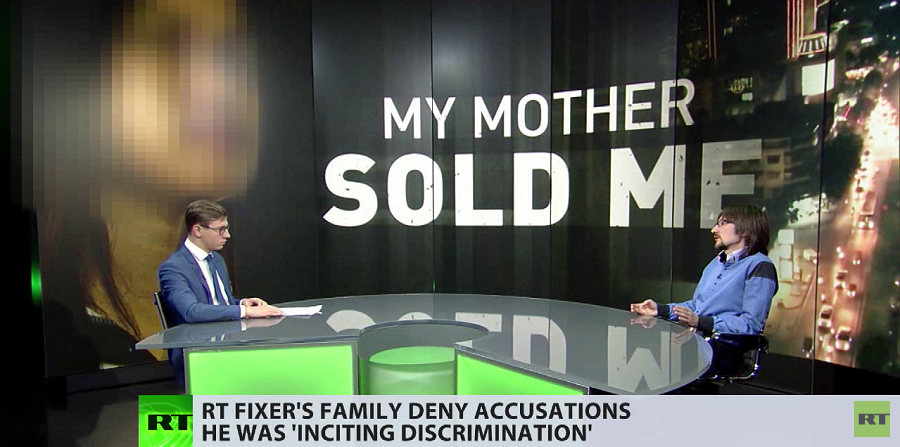
The director explained that his team had worked with Mony before. He was brought in to assist in making several documentaries in Cambodia – including a 2016 film about the tough working conditions in the nation's factories.
"Mony never experienced problems with the authorities before. Everything was fine."
The film crew got all required permits for shooting the movie, the director said. The team worked “in close contact” with the local authorities who were “well aware” of the nature of the documentary. The team even approached the Phnom Penh governor in the city hall, who “personally gave us permission to film and promised assistance.”
“Our main goal was to not [just] to shed light on that problem but also to show the other side – how the government is solving it. We wanted to film a police special operation to find such children,” Burnatov said, adding that in the end that failed to happen because the human rights department at the local police station they had to contact was “locked” every time they tried.
The director was surprised to learn of Cambodia's reaction to the RT film once it aired. It is “strange” that officials were up in arms, considering that other foreign channels, like CNN, have traveled to Cambodia in the past to report on and make documentaries on the very same issue.
International rights groups, including the Human Rights Watch (HRW), have also been well aware of the horrors of sex trafficking in the region.
"It’s quite shameful that some people in Cambodia are so poor that they will consider selling their daughters to earn money, they’re quite desperate," Phil Robertson, deputy director of HRW’s Asia Division, told RT. "There’s a very large commercial sex industry in the country, that’s no secret."
"The issue of child sex and child sex prostitution has been an issue in Cambodia for many years and many people believe that Cambodia’s made progress on this, but obviously it’s still going on," he added.
UPDATE: Following the first court hearing in Cambodia, Mony has been sent to jail, his wife told RT.
The Committee to Protect Journalists has called on Phnom Penh to “immediately” release the activist.
“We call on Cambodian authorities to immediately and unconditionally release Rath Rott Mony,” said Shawn Crispin, CPJ’s senior Southeast Asia representative.
“The real story behind this ‘false news’ accusation is that Cambodia has morphed from a multi-party democracy with a relatively free media into a one-party dictatorship that brooks no dissent. It’s Prime Minister Hun Sen’s regime that has damaged the national image, not the media.”
Subscribe to RT newsletter to get stories the mainstream media won’t tell you.


